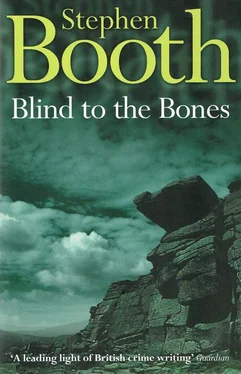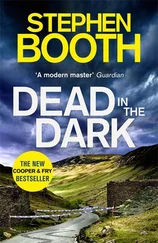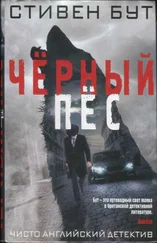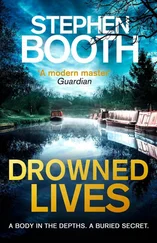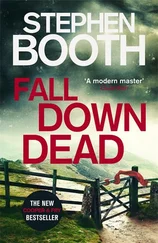1 ...7 8 9 11 12 13 ...119 ‘It does ring a bell,’ said Cooper.
‘I’ll show you when we can get down into the village,’ she said. ‘That would be the best way.’
This bit of the county was hardly accessible from anywhere else in Derbyshire. It was much easier to get to it from Sheffield on the Yorkshire side, or even from Hyde on the Manchester side. But in the 1970s, someone in an office in London had ruled that it should be in Derbyshire, so that was the way it was. Which county you lived in could make a difference of several thousand pounds to the value of your house.
Cooper looked down at the village once more, feeling that there was something he hadn’t paid proper attention to. Just below the bridge near the church, the river widened into a pool where a few willows were still bare now, but would surely add a bit of greenery later in the summer. Here, the bank was full of nettles and rosebay willowherb. But there was something strange about the pool.
He focused PC Udall’s binoculars on the water. But in fact, he could barely see the water, because the pool was half-full of large, flat objects. They seemed to be rectangular wooden boards of various sizes, floating on the surface, but tied to trees on the edge of the water. He could make out some lengths of blue nylon rope dipping in and out of the water. The boards looked as though they might have been there for some time, because there was duckweed clinging to them, and green mould growing in patches on many of the panels. Cooper could see no purpose for the boards at all. They weren’t the usual sort of fly-tipped rubbish, either.
‘That’s strange,’ he said.
But Udall just shrugged. ‘Well, this is Withens,’ she said.
The first building they saw by the side of the road in Withens had long since collapsed. Its walls were tumbled and its timbers blackened, as if there had been a fire a long time ago. Maybe several fires. Now, grass was growing over the stones, and it looked well beyond conversion into a holiday home. Next to the ruins was a fallen oak tree covered in thick moss, which clung to the dead bark in pale green shrouds. Where the main bough of the tree had hit the ground, it had begun to rot back slowly into the earth.
Nearby, a burnt-out car stood on the grass verge. It was something about the size of a Ford Fiesta, with its tyres gone, its windows shattered, and its paintwork scorched down to the metal. But removal of abandoned cars was a problem for the local council.
The village itself was no more than a scatter of stone houses, a pub, a church, a phone box, and a few run-down farms. The farms still had yards that opened directly on to the main street, the way it had been in most Peak District villages at one time, until the demand for residential development drove up the price of land. Then the farmers had moved out of the villages that had originally grown up around them, and the old farmyards and dairies had been swept away, to be replaced by desirable residences in attractive rural settings.
It hadn’t happened in Withens. Perhaps nobody had found the village desirable enough. If the farms went out of business here — as looked more than likely from their condition — then their barns and dairies would probably remain rotting for decades before the demand for new housing reached Withens. For now, the presence of the farmyards meant that the main street was well plastered with mud that had dropped from tractor tyres and been churned by the feet of passing cattle.
On the face of the opposite hill, the air shafts looked from a distance like those Second World War gun emplacements known as ‘pill boxes’. They were round and squat, built to survive — though in this case, they had been intended to survive the weather that a century of Dark Peak winters could throw at them, rather than bombardment from the German navy.
Just past the Quiet Shepherd pub, a car park and picnic area had been created. There was a bus stop in the entrance to the car park. As Cooper parked his Toyota next to Udall’s liveried Vauxhall Astra, a little red, white and blue Yorkshire Traction bus turned in from the road. Along the side of the bus was an advert for a local firm of solicitors. After making a circuit of the car park, it drove out again. There were no passengers on board, and no one waiting at the stop.
‘No problem kids hanging around at the moment,’ said Cooper.
‘You’re joking,’ said Udall. ‘On a Saturday? It’s much too early. Come back in the evening, and it’ll be different.’
‘You’ve got two children, haven’t you, Tracy?’
‘A boy and a girl. But they’d damn well better be in their rooms with their PlayStations in the evening, not hanging around on the street.’
‘Or doing their homework?’
‘Well... I don’t expect them to be Einsteins.’
Then Cooper noticed something he hadn’t expected. From the centre of the village, looking towards the north east, he could see a wind farm. Three rows of tall, white turbines stood on a prominent summit, in a location where they would best catch the Pennine winds. Their vast arms turned slowly in the wind, and their blades glinted as they caught a bit of sun from a break in the clouds. They looked like the advance armies of the twenty-first century, marching over the hill towards Withens.
Philip Granger weaved his way between lines of vehicles that had slowed to a crawl on the A628 in Tintwistle. Cars were backed up from the turning to Hadfield, and motorists were getting frustrated. Three long back limousines parked half on the pavement outside the church while they waited for a wedding weren’t helping very much, either.
Further on towards the motorway it would be even worse, with lorries jamming the lights on the A57 and traffic at a standstill right the way through Hollingworth and Mottram. It was always like this. And it always would be, unless someone got around to building a bypass. That’s what Neil always said.
Philip found a gap between two cars that was just wide enough for him to reach the kerb and drew his motorbike on to the pavement in front of his brother’s house. He gave the engine a quick rev before he switched it off, then kicked down the stand and propped his bike against the brick wall. The machine was an old Triumph that had been carefully restored once, though not by him. The roar of its engine was deep and loud, and people who knew him were usually in no doubt that he had arrived somewhere.
He stared back at the car drivers on the road as he took his time unfastening his helmet, locking it into a box mounted over the back wheel of the bike and fastening a chain through the front spokes. You couldn’t be too careful in these parts.
By now, Neil would normally have recognized the sound of the Triumph and left the front door off the latch for his older brother to get into the house. But when Philip walked up the short path he found the door still locked. He rapped the knocker a couple of times, and rang the bell, but got no answer. He knocked again, waited a minute, then backed down the path to look up at the bedroom window, where the curtains were still closed.
Philip glanced at the windows of the houses on either side. Sure enough, the woman on the right was peering at him through her curtains. She didn’t like him, or his motorbike. But Neil said she didn’t like anybody very much. She hated cars and their drivers even more than she hated bikers.
So Philip gave the woman a little wave, gestured at his brother’s bedroom, shrugged and grinned. She stared back at him without a smile.
He fumbled in the pockets of his leathers for some keys. Neil had given him a key to the house when Philip had first helped him move to Tintwistle from Withens. The front door opened straight away with the Yale key, which meant it wasn’t bolted on the inside. Philip couldn’t remember whether Neil used a bolt when he was in the house or not.
Читать дальше
Конец ознакомительного отрывка
Купить книгу
